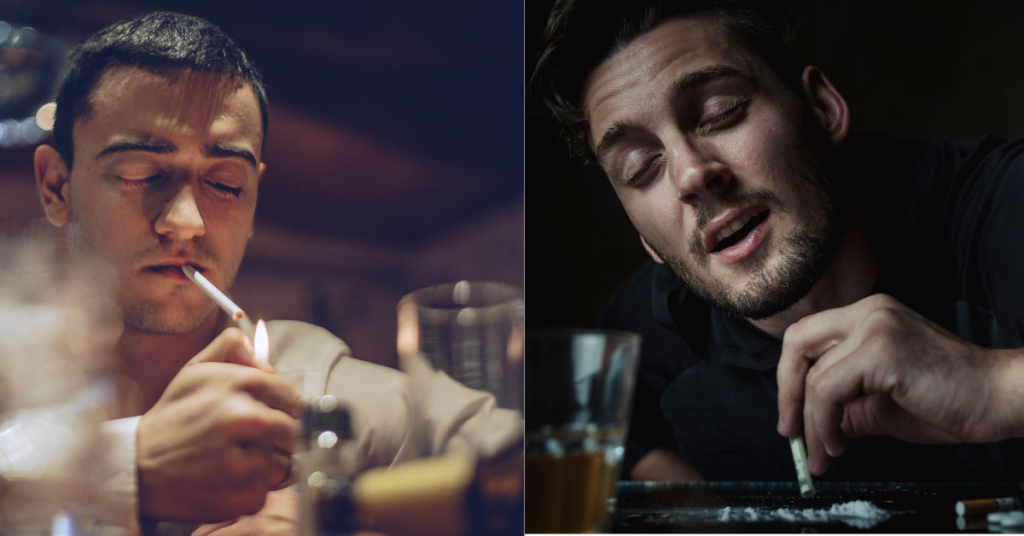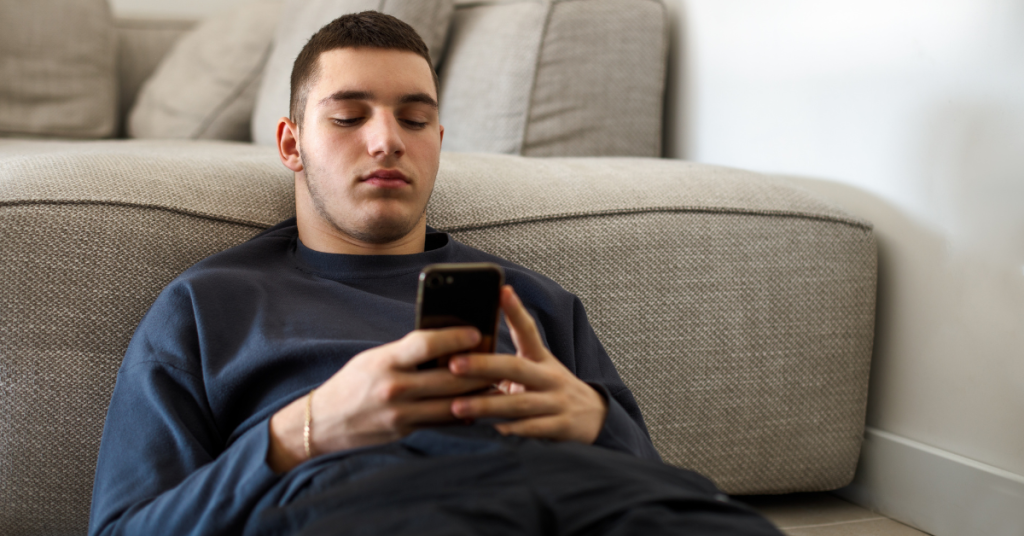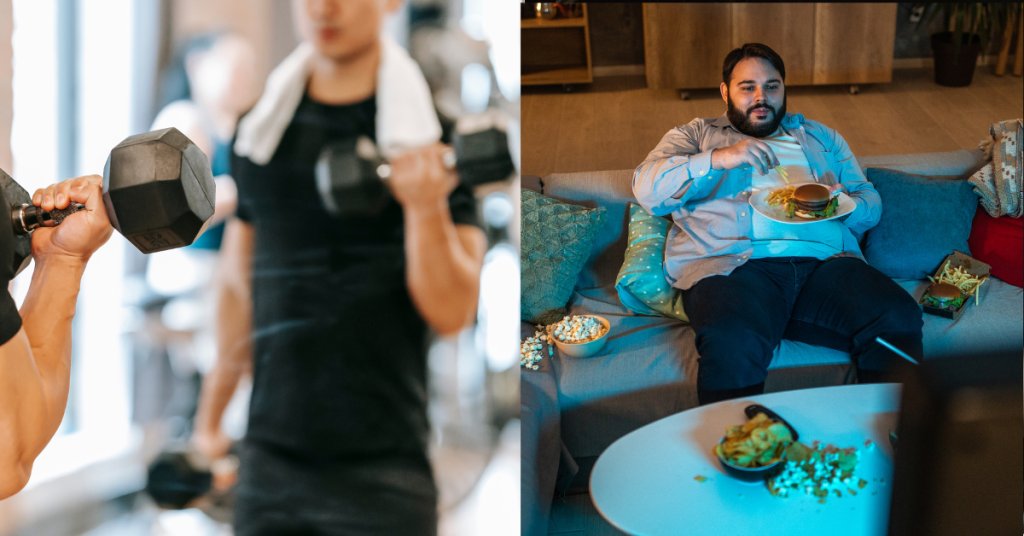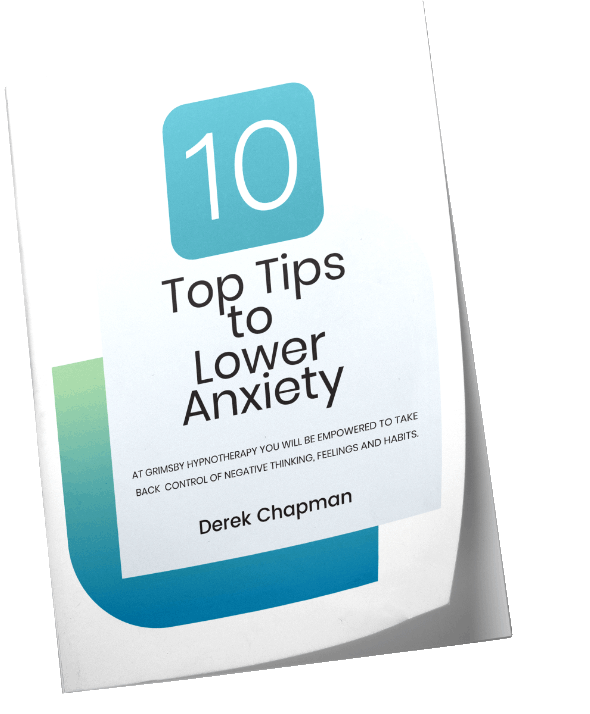
Habits or Addictions are two common terms used to describe certain behaviours, but they are not the same thing. Although there are similarities between the two, there are also significant differences that set them apart.
First, let’s define what they are. Habits are behaviors that we do repeatedly, often without even thinking about them. For example:
Are all habits.
Habits can be positive or negative, and they are often formed through consistent repetition over time.

On the other hand, addictions are behaviors that we feel compelled to do even when they have negative consequences. Addictions are often characterised by a loss of control over the behavior, and they can be difficult to stop even when we want to.
Addictions can be related to substances, ,such as Cocaine, Marijuana and Alcohol or behaviours such as Gambling.
One key difference between habits and addictions is the level of control we have over them. With habits, we have a significant amount of control and can choose to stop or modify the behavior if we want to.
With addictions, however, we often feel like we have little to no control over the behavior, even if we want to stop. Addictions can be so powerful that they can override our logical thinking and decision-making abilities, leading us to engage in behaviors that we know are harmful or risky.
To find out more about overcoming Habits or Addictions you may find this helpful.

Another difference is the level of impact they have on our lives. Habits are often relatively benign and may have little impact on our overall well-being.
For example, regularly checking our phones may not be harmful, but it may not be beneficial either. However, addictions can have a significant impact on our physical, mental, and emotional health, as well as our relationships, finances, and overall quality of life. Addictions can lead to serious health problems, financial ruin, and even legal troubles in some cases.
There is also a difference in the underlying causes of habits and addictions. Habits are often formed through repeated actions that we find pleasurable or rewarding.
For example, if we enjoy the taste of coffee, we may develop a habit of drinking it every morning. Addictions, on the other hand, are often the result of deeper psychological or emotional issues, such as trauma, stress, or anxiety.
Addictions may also be related to underlying mental health conditions, such as depression or bipolar.
It’s worth noting that habits can sometimes lead to addictions. For example, if someone develops a habit of drinking alcohol regularly, they may be at risk of developing an addiction if they continue to drink excessively. Similarly, if someone has a habit of using drugs recreationally, they may be more susceptible to developing a substance use disorder.

Final Word
Habits and addictions, though distinct, have a significant impact on our lives. Healthy habits can be modified or stopped with effort, while addictions can be destructive and challenging to overcome alone.
If you’re worried about developing an addiction, don’t hesitate to seek help. Addiction can have lasting effects on your well-being, relationships, and overall quality of life. There are numerous resources available, including counseling, support groups, and medication-assisted treatment.
Remember, habits can be changed, but addictions may require more support. The first step is acknowledging the issue and being open to change. You don’t have to face it alone—reach out for the assistance you need.
https://youtu.be/qExhCYkFXZc
Facebook
Twitter
LinkedIn


Book your initial consultation with Derek to find out how he can help you.
www.grimsbyhypnotherapy.co.uk trading as dcmindcoach.com Ltd All Rights Reserved | Cookies
| Cookie | Duration | Description |
|---|---|---|
| cookielawinfo-checkbox-advertisement | 1 year | Set by the GDPR Cookie Consent plugin, this cookie is used to record the user consent for the cookies in the "Advertisement" category . |
| cookielawinfo-checkbox-analytics | 11 months | This cookie is set by GDPR Cookie Consent plugin. The cookie is used to store the user consent for the cookies in the category "Analytics". |
| cookielawinfo-checkbox-functional | 11 months | The cookie is set by GDPR cookie consent to record the user consent for the cookies in the category "Functional". |
| cookielawinfo-checkbox-necessary | 11 months | This cookie is set by GDPR Cookie Consent plugin. The cookies is used to store the user consent for the cookies in the category "Necessary". |
| cookielawinfo-checkbox-others | 11 months | This cookie is set by GDPR Cookie Consent plugin. The cookie is used to store the user consent for the cookies in the category "Other. |
| cookielawinfo-checkbox-performance | 11 months | This cookie is set by GDPR Cookie Consent plugin. The cookie is used to store the user consent for the cookies in the category "Performance". |
| CookieLawInfoConsent | 1 year | Records the default button state of the corresponding category & the status of CCPA. It works only in coordination with the primary cookie. |
| elementor | never | This cookie is used by the website's WordPress theme. It allows the website owner to implement or change the website's content in real-time. |
| viewed_cookie_policy | 11 months | The cookie is set by the GDPR Cookie Consent plugin and is used to store whether or not user has consented to the use of cookies. It does not store any personal data. |
| Cookie | Duration | Description |
|---|---|---|
| CONSENT | 2 years | YouTube sets this cookie via embedded youtube-videos and registers anonymous statistical data. |
| Cookie | Duration | Description |
|---|---|---|
| VISITOR_INFO1_LIVE | 5 months 27 days | A cookie set by YouTube to measure bandwidth that determines whether the user gets the new or old player interface. |
| YSC | session | YSC cookie is set by Youtube and is used to track the views of embedded videos on Youtube pages. |